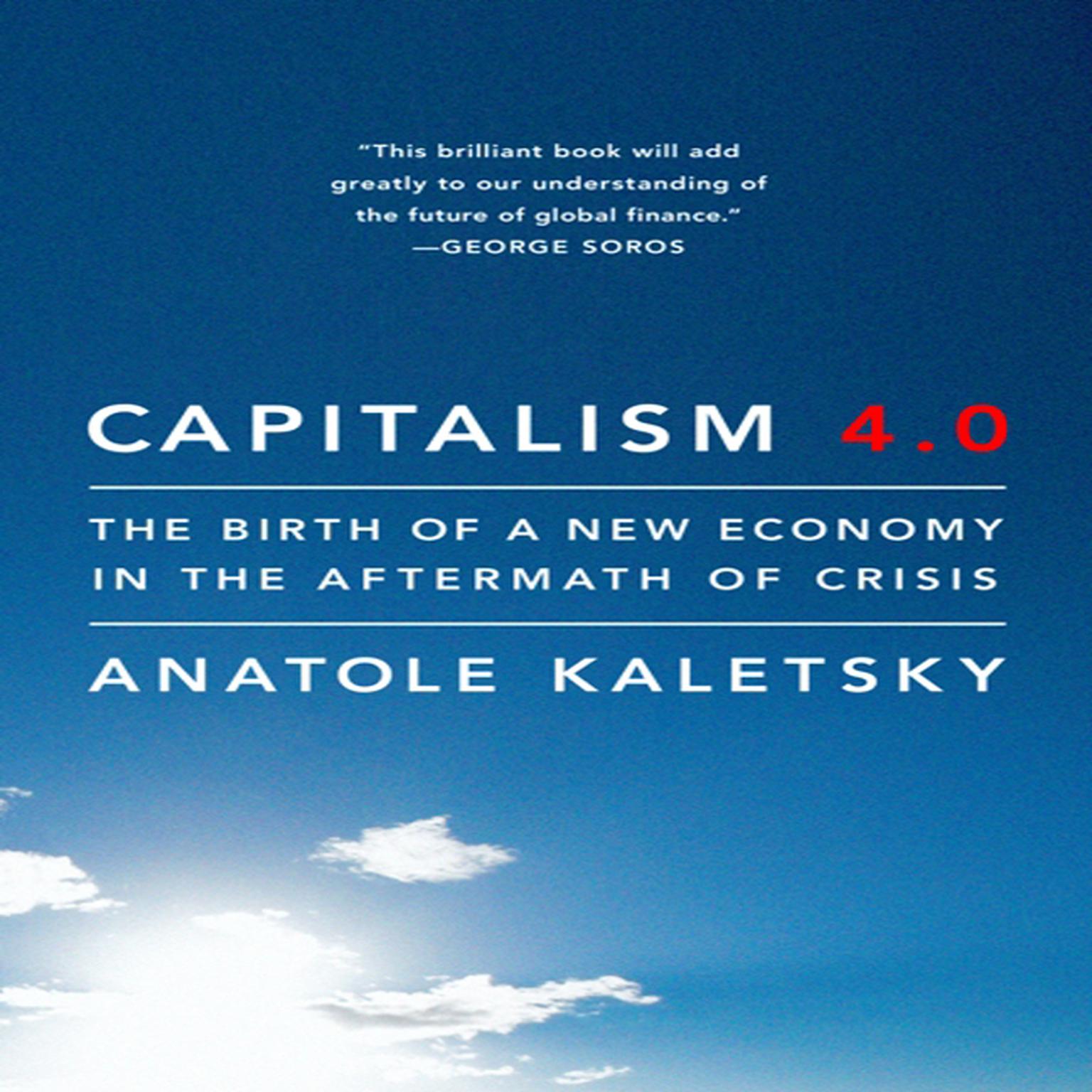 Play Audiobook Sample
Play Audiobook Sample
Capitalism 4.0: The Birth of a New Economy in the Aftermath of Crisis Audiobook
 Play Audiobook Sample
Play Audiobook Sample
Quick Stats About this Audiobook
Total Audiobook Chapters:
Longest Chapter Length:
Shortest Chapter Length:
Average Chapter Length:
Audiobooks by this Author:
Publisher Description
Capitalism was not destroyed by the crisis, but it was irrevocably changed. This provocative audio book shows how the forces that precipitated the financial meltdown of 2007-2009 are now creating a new and stronger version of the global capitalist system. This system will continue to be led and shaped by the U.S. if its businesses and politicians play their cards well. The crisis that followed the collapse of Lehman Brothers marked the fourth systemic transformation of capitalism since the late eighteenth century. The first of these great transitions launched the century of classical capitalism from the Napoleonic Wars to the Great Depression. The second version of capitalism emerged in the 1930s with the New Deal and government-led Keynesian economics, but blew up in the great inflation of the 1970s. That crisis launched the third age of capitalism starting with the elections of Margaret Thatcher and Ronald Reagan in 1979-1980. This business-led period culminated in the “market fundamentalist” excesses of George W. Bush, Alan Greenspan, and Henry Paulson. Market fundamentalism collapsed in 2008, but the crash has brought into play capitalism’s unerring instinct for self-preservation. As a result, the next version of the capitalist system is now evolving: Capitalism 4.0. But as the global economy is reinvented, will American-led democratic capitalism or Chinese-style state capitalism prevail? In this wide-ranging and controversial audio book, Anatole Kaletsky puts the upheavals of 2007-2009 in historical and ideological perspective. He describes the emerging features of the new capitalist model, explains how it will differ from previous versions, and suggests how the rise of Capitalism 4.0 could change politics, finance, international relations, and economic thinking in the coming decades.
Download and start listening now!
"An excellent book on the way forward from the Credit Crunch and the collapse of market fundamentalism. Sometimes it leans a little too heavily in the Keynesian direction for my taste but, on the whole, a great attempt to develop a 'mixed economy' paradigm."
— David (4 out of 5 stars)
Quotes
-
“This brilliant book will add greatly to our understanding of the future of the world economy.”
— George Soros -
“By now it is hard for authors to stand out in the growing library of books on the causes and consequences of the financial crises. Anatole Kaletsky manages to do so, thanks largely to the breathtaking ambition of Capitalism 4.0, and partly to the unusual optimism that infuses it…¨For sheer intellectual chutzpah and creativity, it is well worth reading.”
— Economist -
“A provocative view of many current political and economic controversies…Kaletsky’s considerable achievement is to put these events in a perspective that looks back to history and forward to an extended future, and to do so in a framework which goes far beyond a chronology of events. His book is a major contribution to the debate on the nature of the market economy that needs to follow the practical failures of market fundamentalism.”
— Financial Times -
“Cogent, readable, and thoroughly enjoyable.”
— Guardian (London)
Capitalism 4.0 Listener Reviews
-
" Long read, many good theories and possibilities. The author leaves himself a lot of wiggle room much as my son did when I asked him why he was majoring in Psychology as an undergraduate. His answer was "because there are no wrong answers". "
— Chris, 4/5/2013 -
" This is a great overview of our current financial mess and how we got here, and full of optimism to boot. Not an easy read but well worth it. "
— Harold, 8/6/2011
About Anatole Kaletsky
Anatole Kaletsky is
editor-at-large of the Times of London, where he writes
weekly columns on economics, politics, and international relations. He is
on the governing board of the New York–based Institute for New Economic Theory
and is the author of Capitalism 4.0: The
Birth of a New Economy in the Aftermath of Crisis.
About Scott Peterson
Don Leslie has appeared on Broadway, off Broadway, and in regional theaters throughout the country. He has been heard in thousands of commercials, promos for all the broadcast networks and most cable stations, political campaigns, movie trailers, and over fifty audiobooks.


